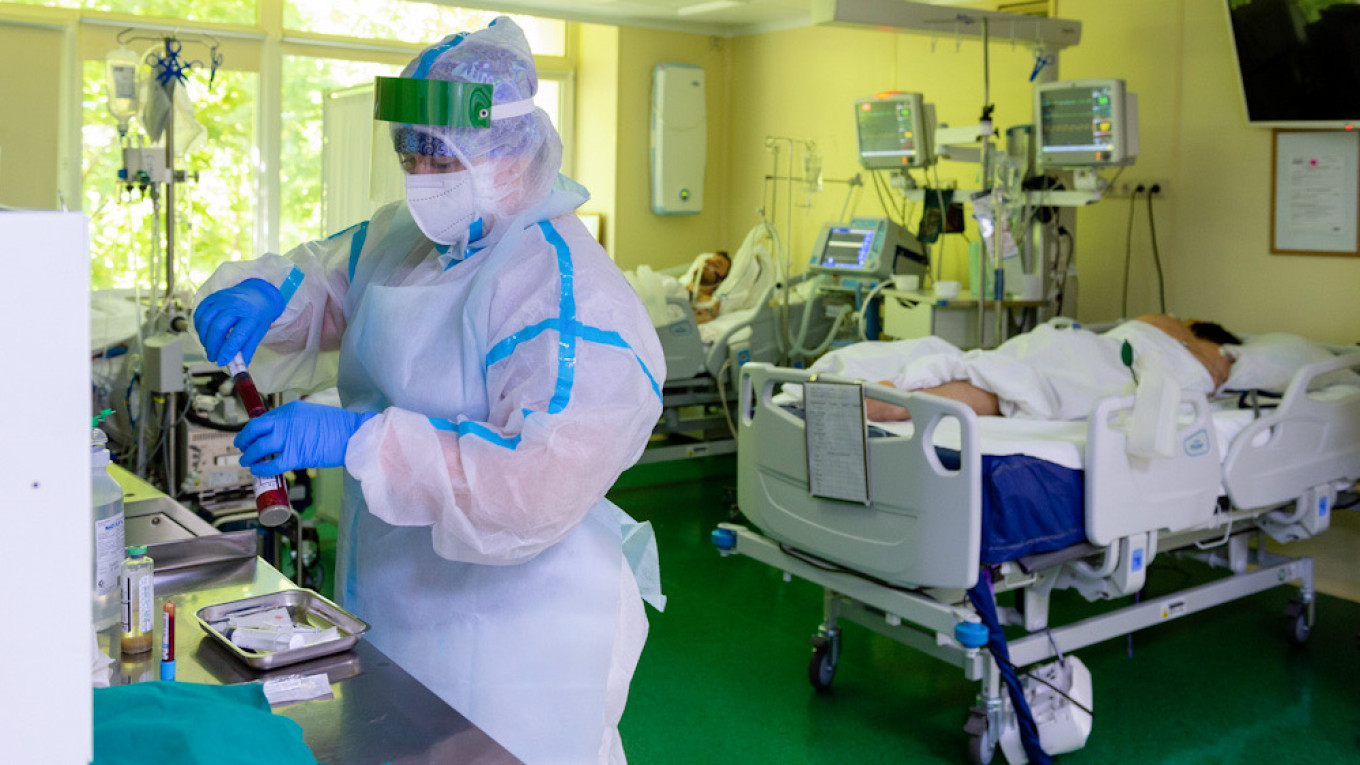Russia is investigating reports of the first Delta Plus coronavirus variant infections within its borders, the country’s consumer protection watchdog told the state-run RIA Novosti news agency Friday.
Some 200 cases of Delta Plus — itself a slight variant of the highly contagious Delta variant first detected in India — have been confirmed in 11 countries including the U.S. and Britain. Experts are currently studying whether the new mutation is more resistant to vaccines or more dangerous than the original Covid-19 strain.
The St. Petersburg-based Fontanka newspaper had earlier reported, citing influenza research expert Daria Danilenko, that the first case of infection with Delta Plus has appeared in Russia.
“This is a singular case and, most likely, imported,” Danilenko, a deputy research director at the state-run Smorodintsev Research Institute of Influenza, told Fontanka.
But the case hasn’t yet been officially confirmed, consumer protection watchdog Rospotrebnadzor told RIA Novosti, saying it’s now looking into the Fontanka report.
“Such statements are often not confirmed after a scientific examination,” Rospotrebnadzor’s press service said.
Meanwhile, two patients infected with the Delta Plus variant in India have died as of Friday, the Russian state-run TASS news agency reported.
The Delta Plus variant contains an additional mutation called K417N on the coronavirus spike which some global experts fear might make it more resistant to antibodies.
Russia’s regions are currently following Moscow and St. Petersburg in tightening Covid restrictions and ordering compulsory vaccination as Covid-19 cases continue to surge. Moscow Mayor Sergei Sobyanin said that the Delta variant accounted for nearly 90% of the city’s new cases.
A Message from The Moscow Times:
Dear readers,
We are facing unprecedented challenges. Russia's Prosecutor General's Office has designated The Moscow Times as an "undesirable" organization, criminalizing our work and putting our staff at risk of prosecution. This follows our earlier unjust labeling as a "foreign agent."
These actions are direct attempts to silence independent journalism in Russia. The authorities claim our work "discredits the decisions of the Russian leadership." We see things differently: we strive to provide accurate, unbiased reporting on Russia.
We, the journalists of The Moscow Times, refuse to be silenced. But to continue our work, we need your help.
Your support, no matter how small, makes a world of difference. If you can, please support us monthly starting from just $2. It's quick to set up, and every contribution makes a significant impact.
By supporting The Moscow Times, you're defending open, independent journalism in the face of repression. Thank you for standing with us.
Remind me later.






